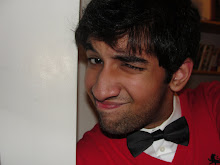
Winter's Bone predictably dominated the Independent Spirit Award nominations with 7, including nominations in 3 out of the 4 acting categories (Jennifer Lawrence in lead, with John Hawkes and Dale Dickey supporting). The Kids Are All Right just behind with 5, with a shocking omission of Julianne Moore in Lead Actress despite six nominations in that very category — beat out by the likes of co-star Bening, Natalie Portman, Jennifer Lawrence, surprises Greta Gerwig for Greenberg (who I had predicted in Supporting...what do I know?) and Michelle Williams who turned out to be the only nomination for Blue Valentine (I had predicted co-star Gosling would make it, but not her).
Tomorrow we have the more industry friendly awards of the Satellites announcing their nominations; again, generally an inconsequential group. The Annies also announce their nominees tomorrow rewarding fields of animation this past year where Toy Story 3, How to Train Your Dragon and Tangled have been critical and commercial hits, with Sylvain Chomet's (of Triplets of Belleville fame) The Illusionist paced to be a critical darling as well. Day after, the National Board of Review announces its winners, and it's all downhill from there. Read more!

.jpg)

